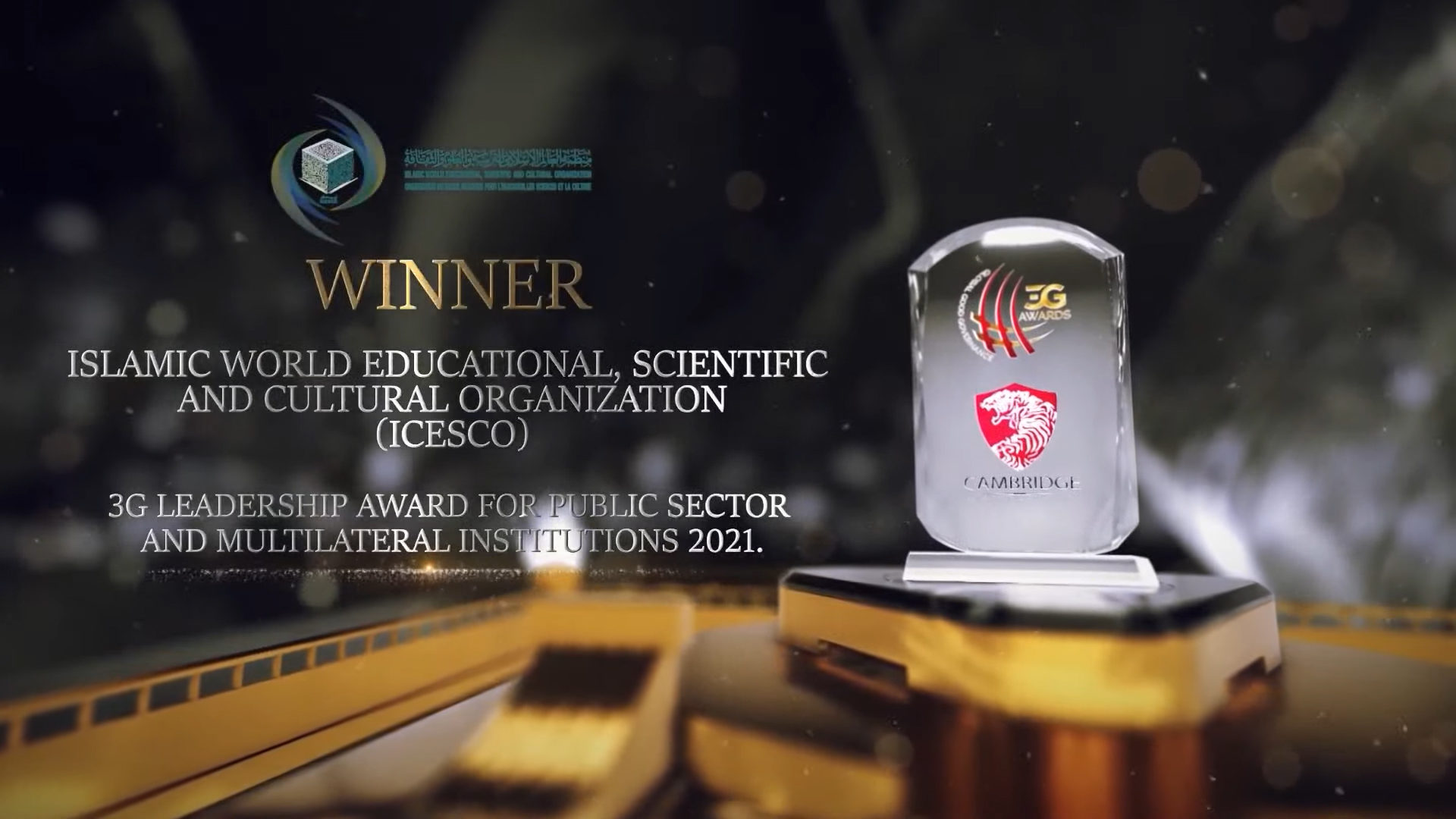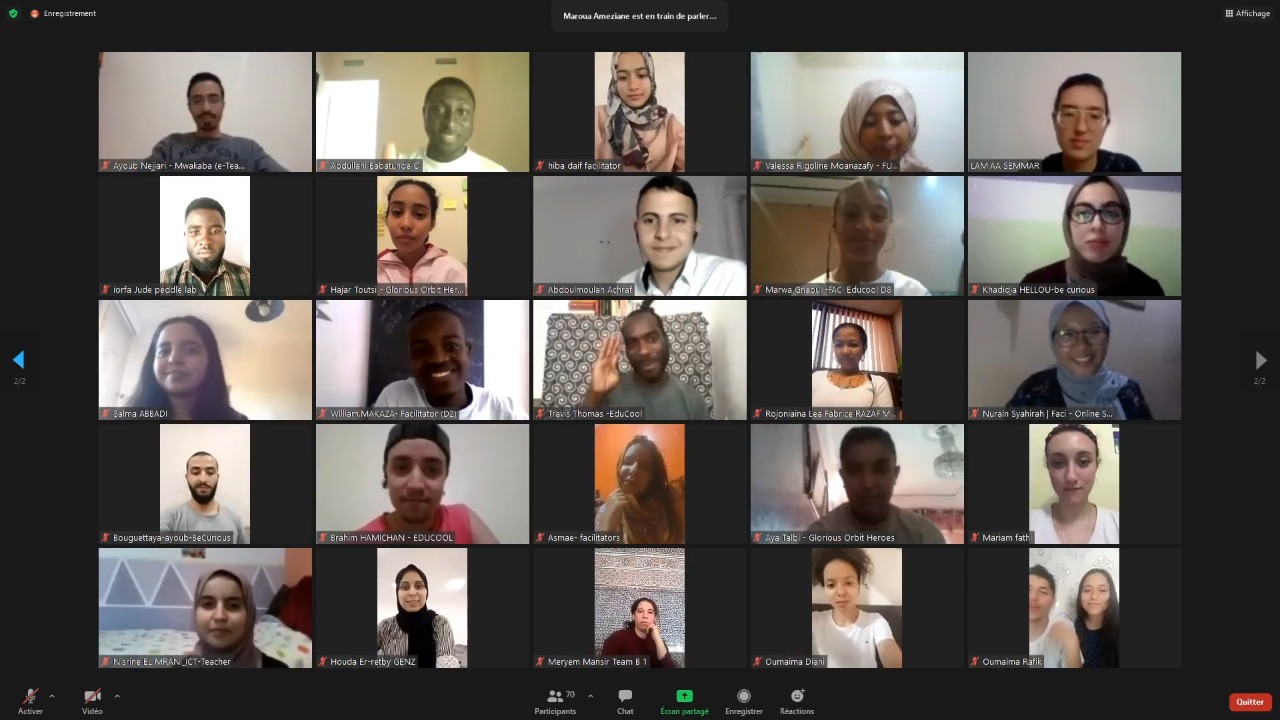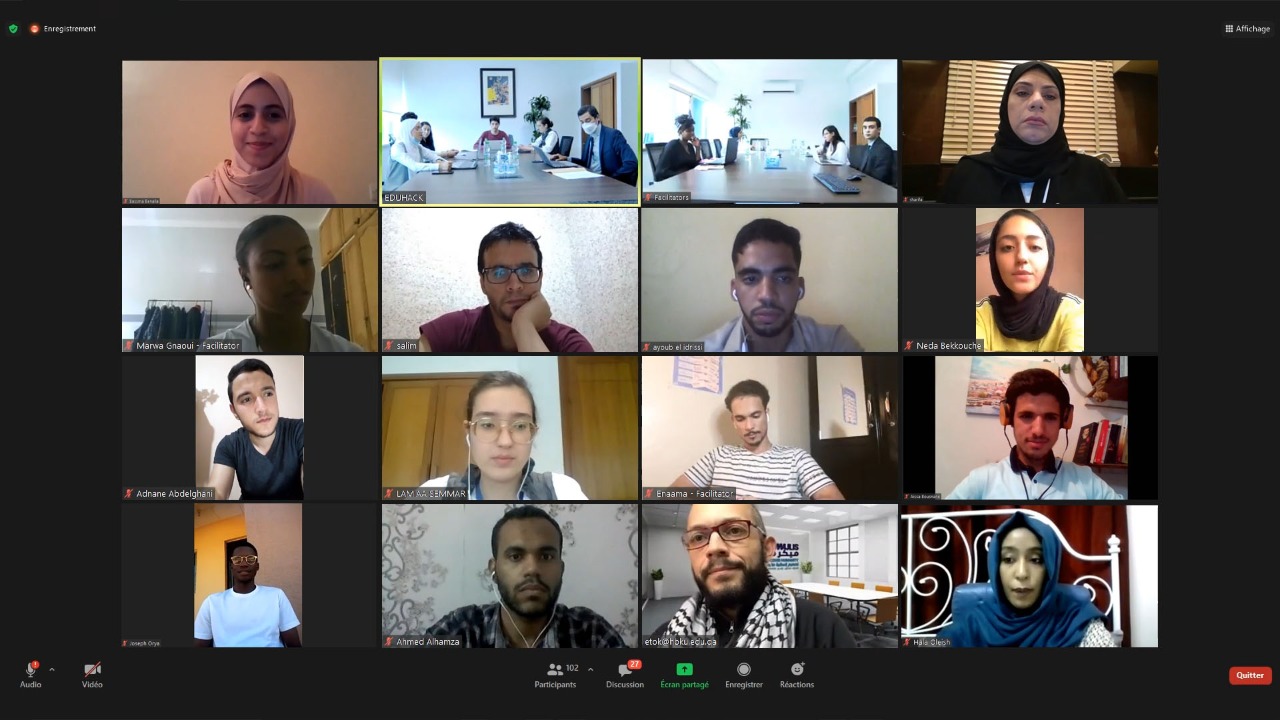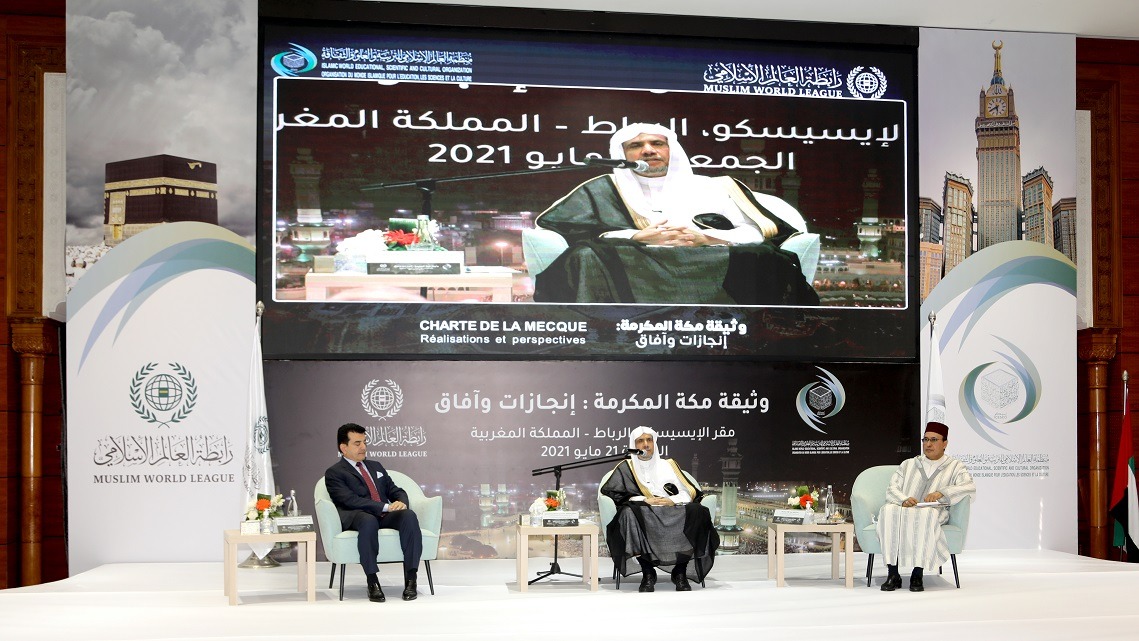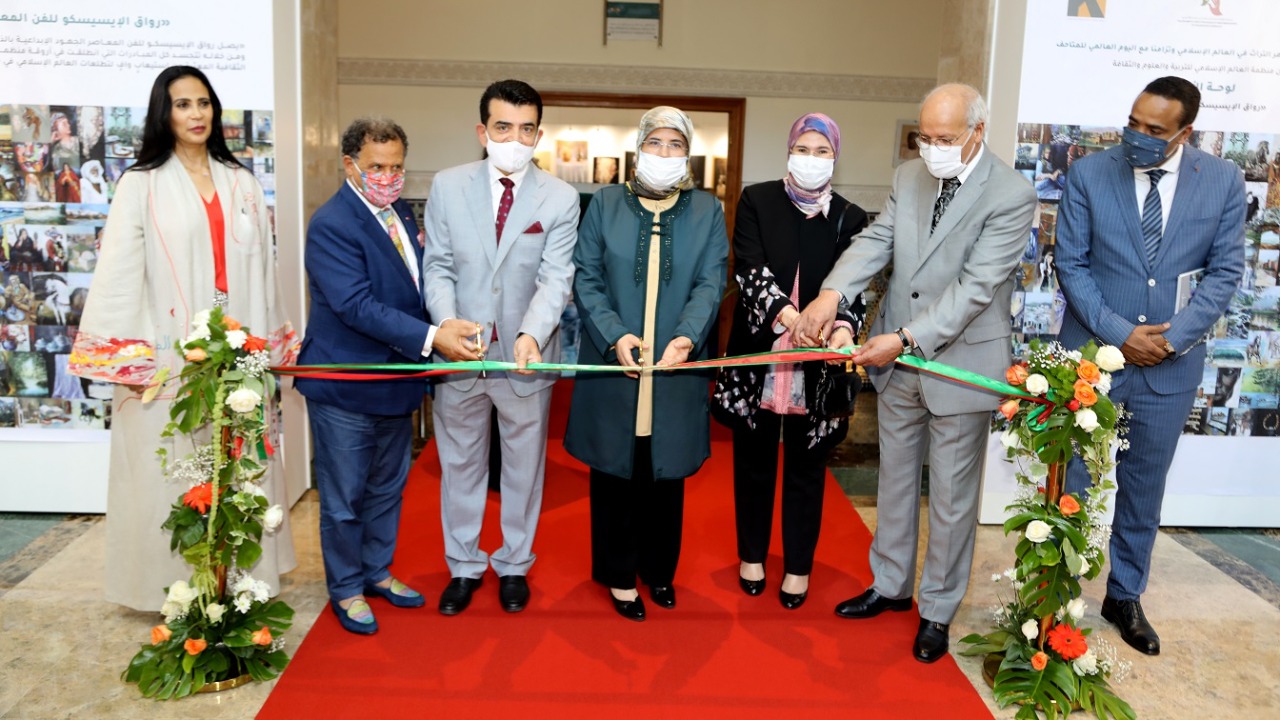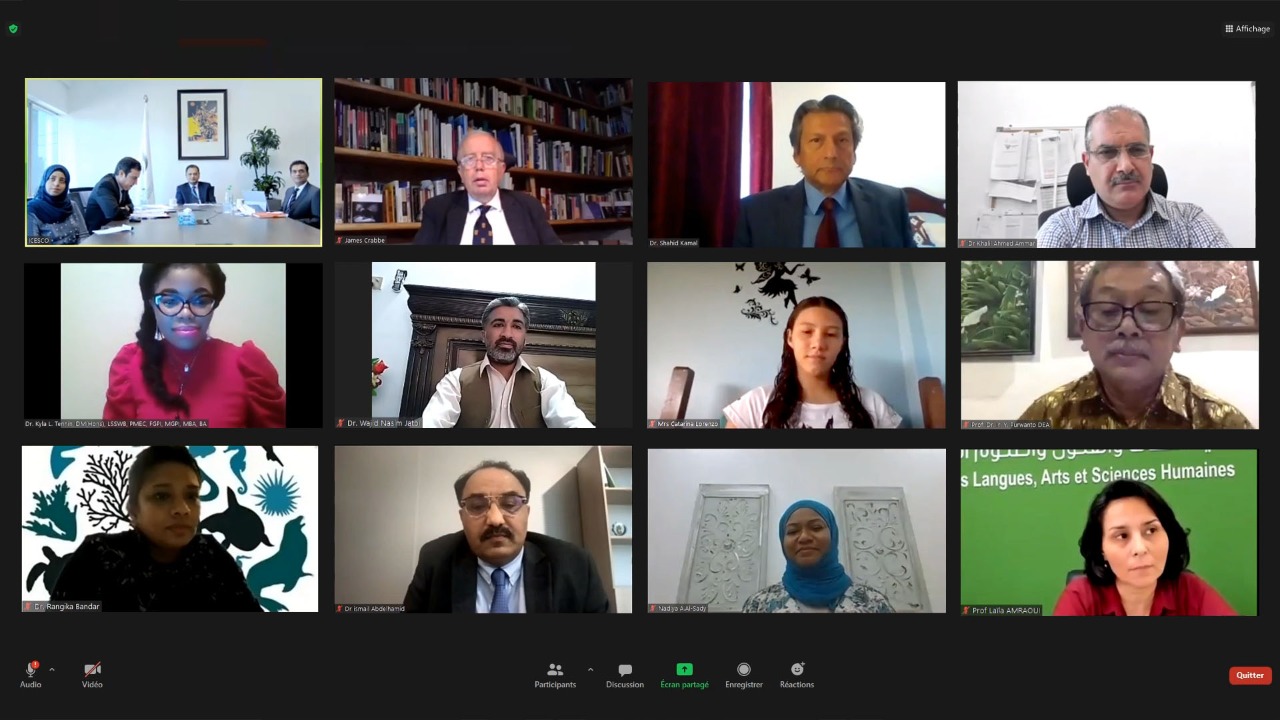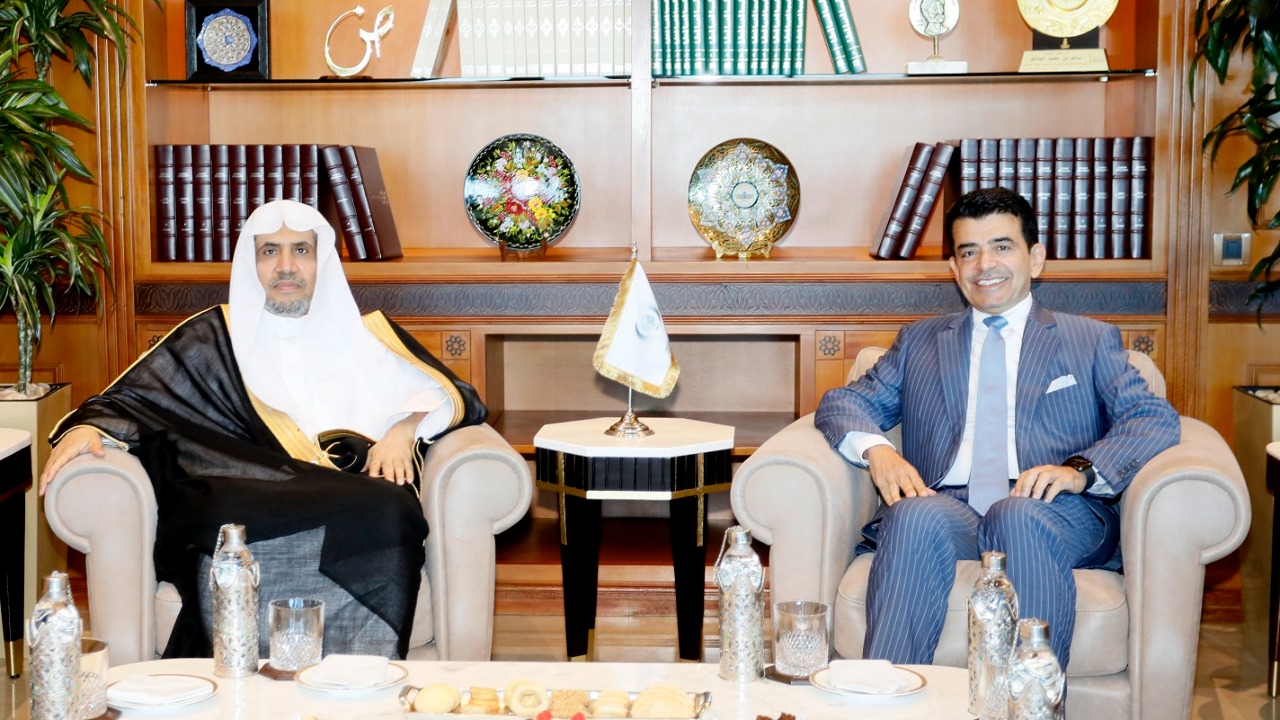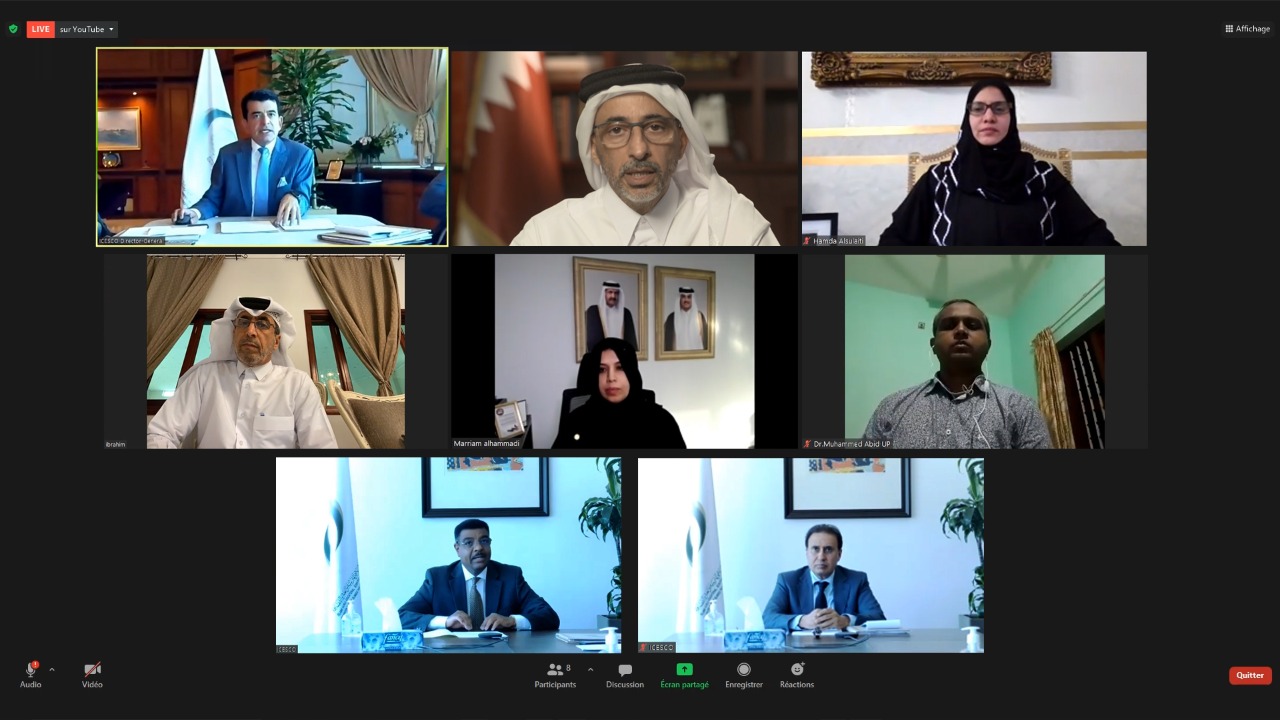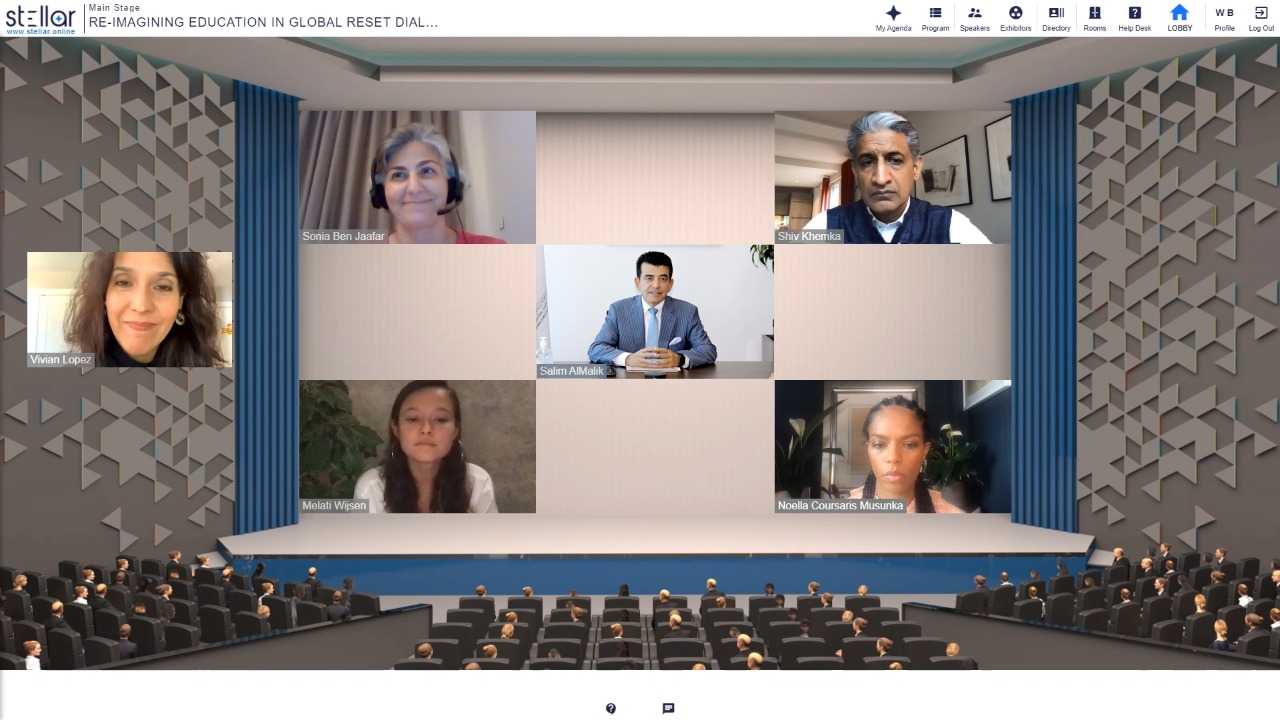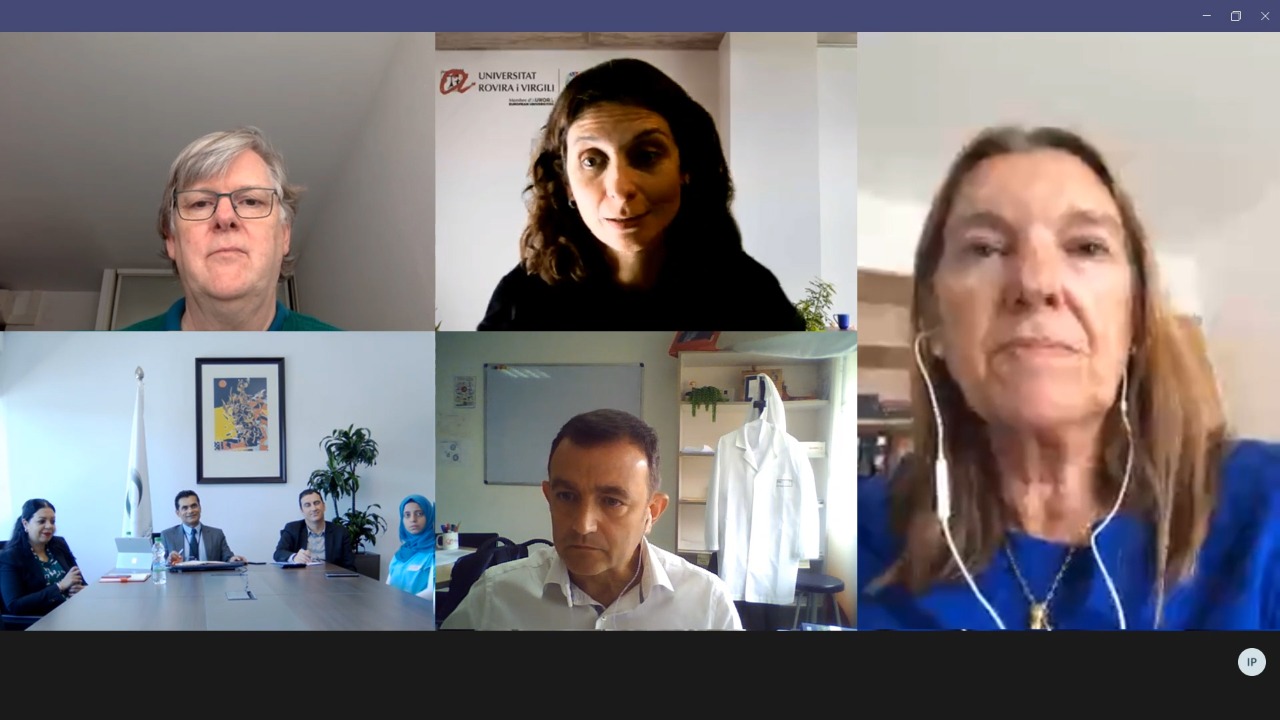The Islamic World Educational, Scientific and Cultural Organization (ICESCO) won the “3G Leadership Award for Public Sector and Multilateral Institutions” for 2021, from Cambridge-IFA in the United Kingdom (UK), in recognition of the Organization’s initiatives that attach great importance to the values of social responsibility and good governance.
ICESCO received this Award at the 6th session of 3G Awards, held today, May 25, 2021, through videoconference, during which Dr. Salim M. AlMalik, ICESCO Director-General (DG), gave an address wherein he highlighted the Organization’s efforts to support quality education, promote culture, preserve heritage, and contribute to the development of science and innovation.
Dr. AlMalik indicated that ICESCO is committed to spread the values of tolerance and coexistence and contribute to building a bright future for mankind by launching initiatives and implementing programs and activities to achieve sustainable development and meet the needs and priorities of the Organization’s various Member States.
ICESCO DG thanked Cambridge-IFA for its support of the Organization’s efforts through the 3G Leadership Award for Public Sector and Multilateral Institutions for 2021.
The ceremony also featured a video on ICESCO’s history, objectives and key initiatives and programs in the fields of education, science, culture, and communication.
Cambridge-IFA, a non-profit organization based in the UK, grants 3G Awards every year, which include many categories, to promote the values of social responsibility and good governance among individuals and public and private institutions and rewards the organizations and institutions that prioritize these values.
In addition to ICESCO, the Republic of Indonesia won the Governance and Policy Award while the United Overseas Bank from Singapore won the Excellence in Corporate Governance Award. The Friends of Cancer Patients Association also won in one of the Award’s categories.


